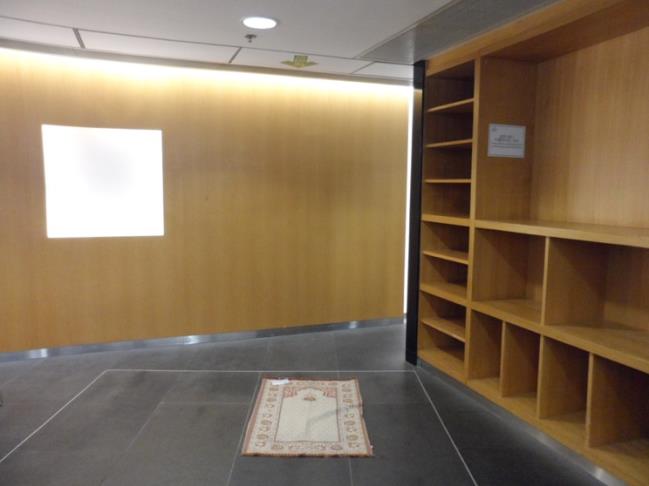
“Quiet rooms” established in public institutions in Scandinavia to accommodate religions in increasingly pluralistic and secular societies have taken on more private uses, revealing a shift from collective religion to a more individualistic spirituality, according to a study published in the journal  Sociology of Religion (Online in August). A team of researchers studied these “rooms of silence” on the campuses of universities in Denmark, Norway, and Sweden. “One of the most striking results of the study of the rooms of silence is how strongly room regulations discourage collective uses and encourage private and ‘spiritual’ use,” write Henrik Reintoft Christensen, Ida Marie Høeg, Lene Kühle, and Magdalena Nordin. These rooms are designed throughout Europe for silence, which excludes some types of religious and spiritual practice and has resulted in a convergence between religious and spiritual rooms.
Sociology of Religion (Online in August). A team of researchers studied these “rooms of silence” on the campuses of universities in Denmark, Norway, and Sweden. “One of the most striking results of the study of the rooms of silence is how strongly room regulations discourage collective uses and encourage private and ‘spiritual’ use,” write Henrik Reintoft Christensen, Ida Marie Høeg, Lene Kühle, and Magdalena Nordin. These rooms are designed throughout Europe for silence, which excludes some types of religious and spiritual practice and has resulted in a convergence between religious and spiritual rooms.
The rooms had been established for group worship by the majority Lutheran churches and their chaplains in these Scandinavian societies, and the changes in use can also illuminate the way these churches have moved away from doctrinal orthodoxy toward a more liberal and privatized religion. The universities themselves have various reasons for approving of this shift. “The names of the rooms have changed. They no longer have any references to religion, which supports the idea of equality in a religiously diverse society and may be attractive in the competition for the best students in an international and globalized field of education,” the authors note. They add that the architecture and location of the rooms make some practices more likely than others. The rooms are not designed for Islamic collective rituals in a period of the rapid growth of Muslim students, though these students have adapted their practices to this new environment.
(Sociology of Religion, https://academic.oup.com/socrel)